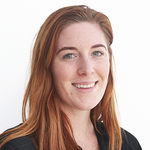Blog
Truly one of a kind – SA-TIED’s Research Assistant programme
Most jobs right out of university are either filled with busy work or too much work—very little time is available for gaining new skills.
This early career period is arguably the most important time for skill building and professional development, which is why the Research Assistant (RA) programme under SA-TIED is designed to help junior researchers achieve their career goals.
The RA programme is made up of five exceptional young researchers and the RA supervisor. Together they help take care of South Africa’s administrative tax data for international and South African researchers.
This enormous undertaking is carried out on the 20th floor of the National Treasury inside the heavily secure data lab. It includes: 1) creating the researcher-friendly tax datasets, 2) solving data errors or making sense of outliers; 3) helping researchers find what they are looking for in the lab; 4) and double-checking research conclusions, making sure they are correct and that the tax data is anonymous; 5) ensuring the necessary software and hardware is up to date. The RAs under the SA-TIED programme get to work with one of the only ‘big data’ sets in Africa – the job requires thinking about and developing good practices for storing and processing large datasets.
With all this responsibility, it is hard to imagine that RAs have time to do anything else, when in fact the RA programme is flexible. It is structured so young researchers can develop new skills, publish research, build important relationships with senior researchers, pursue higher education, and even dabble in areas far outside the walls of the data lab.
Meet some of SA-TIED’s research assistants
As one of SA-TIED’s current RAs, Grace Bridgman is tasked with maintaining one of the datasets called the Individual Panel, a suite of datasets that look at the administrative tax returns at the individual level. As the RA who maintains this dataset, she meets with high-level South African policy makers who use the data for their research.
Outside of the data lab, Grace oversees SA-TIED’s seminar series, where researchers and economists from around the world share their findings with South African policy makers. The seminar series is a significant way for SA-TIED research to reach the hands of those it is intended for. For Grace, it allows her to work with some of the top researchers in her field.
An important aspect of professional development for anyone starting out in their career is networking. In the RA programme, the RA supervisor oversees facilitating those relationships. Marlies Piek works very hard to make sure that her RAs meet the best people to further their careers. For example, she connects her RAs with researchers they can collaborate with and heads of PhD programmes, for those interested in pursuing another degree.
Michael Kilumelume is a part-time RA pursuing his PhD at Stellenbosch University. He became an RA to make himself a better candidate for PhD programmes. In his role, Michael acquired advanced Stata programming skills and intermediate skills in R, Python, and SQL programming; he published two technical notes, one on Identifying foreign firms and South African multinational enterprises as a lead author and the other on Simulating the impact of COVID-19 on formal firms in South Africa as a co-author; and most importantly, he was introduced to his current PhD supervisors—thanks to Marlies.
The RA programme is a unique capacity-building initiative. It is a perfect blend of demanding data analysis, research, skill building, and networking—only the best and brightest young researchers in South Africa are selected. Nowhere in the world can junior-level researchers get access to tax data, making the RA programme truly one of a kind.
The views expressed in this piece are those of the author(s), and do not necessarily reflect the views of the Institute or the United Nations University, nor the programme/project donors.
 Join the network
Join the network